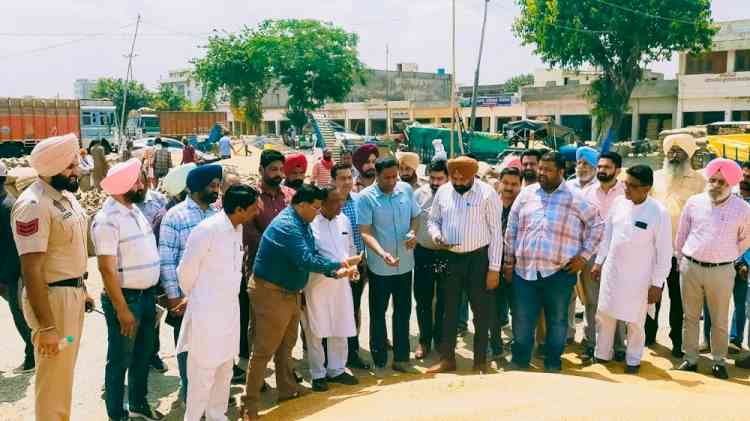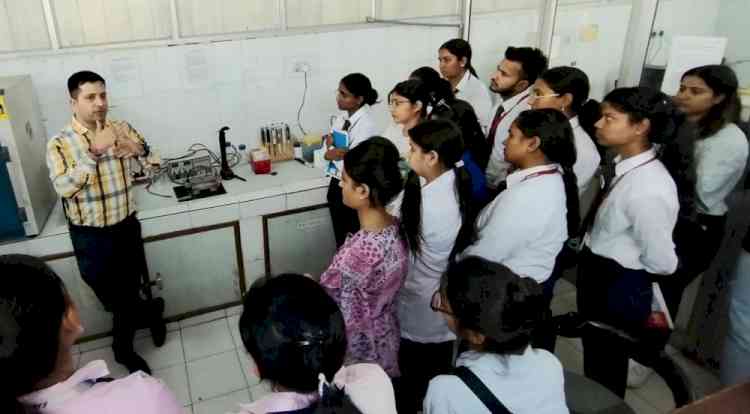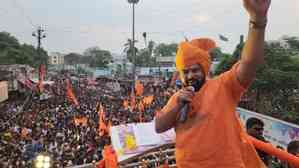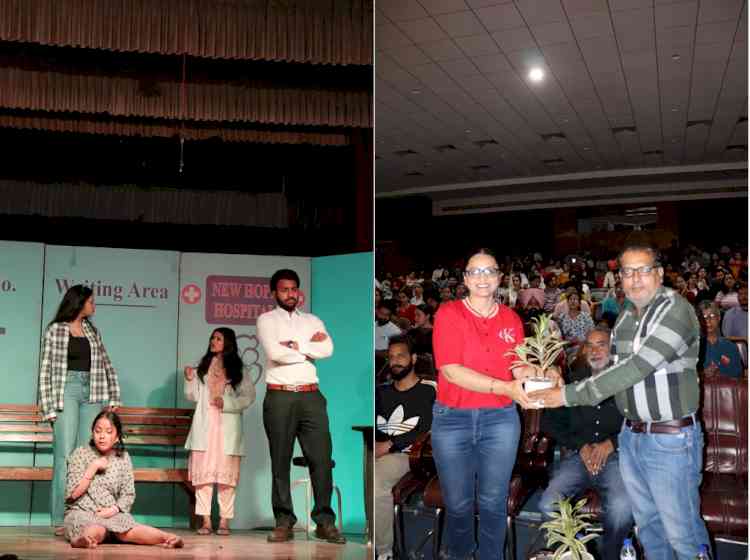India has turned a deaf ear to what is happening in the Gilgit-Baltistan region: Justice P. Ramakrishnam Raju
Author(s): City Air NewsJustice P. Ramakrishnam Raju, Former Judge, High Court of AP seen speaking at the seminar. Hyderabad, December 9, 2018: Today, when as we are celebrating 70th Anniversary of Universal Declaration of Human Rights,...


Justice P. Ramakrishnam Raju, Former Judge, High Court of AP seen speaking at the seminar.
Hyderabad, December 9, 2018: Today, when as we are celebrating 70th Anniversary of Universal Declaration of Human Rights, it’s a shame on society that human rights violation cases still come up in this 21t Century, said Justice P.Ramakrishnam Raju, Former Judge, High Court of AP and Former Member, AP State Human Rights Commission. Speaking at a Seminar on Human Rights Violations in Gilgit-Baltistan in Pakistan Occupied Jammu and Kashmir (PoJK) organised by Hyderabad-based voluntary organisation Social Cause on the eve of Human Rights Day here at PG College of Law, Justice Raju said that though human rights cannot be defined and keep changing depending on time, region, circumstances, etc. Basically, the Human Rights are inherent rights and are undeniable. Human rights vest in a human being even before birth. From womb to tomb, human rights must be respected. No country can infringe human rights of citizens, he said.
Human Rights are mostly violated and are more honoured in the breach than in the observance, Justice Raju lamented. Sometimes governments, individuals and society get blamed for human rights violations because they do not respect the human rights of the people. When we are talking of rights, we always talk about our rights first. But, we must think first of the our neighbour first than think of our rights, he said.
Speaking about the human rights violation in Gilgit-Baltistan (GB region) in Pakistan Occupied Jammu and Kashmir (PoJK), Justice Raju said that whenever the people in GB region have raised a voice, they have been suppressed and oppressed. From the time, the area was accessioned to India, the problem continues. India has maintained a deaf ear to what is happening in Gilgit-Baltistan region (GB region). The people do not have sufficient facilities such as schools, hospitals, etc. These things and many more are effectively reflected in the book “Gilgit-Baltistan and its Unending Saga of Human Rights Violations” by Capt Alok Bansal, he said.
Justice Raju said that the GB region is having rich natural resources, but people are thrown into poverty and not allowed basic amenities and rights. He deplored that despite United Nation’s resolution, Pakistan is not vacating from there and turned it into their colony.
Prof. G.B. Reddy, Dean, Faculty of Law, Osmania University in his address criticised the recent UN report on human rights violations in Kashmir by UN high commissioner for human rights Zeid Ra’ad Al Hussein. Prof. Reddy condemned the report and said that it was partisan. India is a country in which not only are the human rights guaranteed by the Constitution but India follows whatever international human rights of treaties to which India is a signatory. Dr. T. Aparna, Principal, PG College of Law, OU focussed on the historical aspect of the GB region and said that Capt. Alok Bansal’s book focuses on the stragegical importance of the region and demolished the falsehood of how the region does not belong to India through data, documents, etc.
Mr. K. Raka Sudhakar Rao, National Executive Member, Jammu Kashmir Study Centre (JKSC) speaking on the occasion said that the Jammu and Kashmir Assembly has a total of 111 seats but elections are held for only 87 seats belonging to Kashmir valley, Jammu and Ladakh regions and there are 24 empty seats for areas of the state that were occupied by Pakistan in 1947. It is a reminder that India has to bring them back to the fold one day or another.
We have ignored and shied away talking about the GB region for decades. The region is factually, technically, culturally and legally part of India but it is part of Pakistan unofficially. Pakistan does not even recognise the area in its constitution, he said. There is a systematic attempt to alter the demographic and the culture of the region. Giving an example, he said that the Balti name of the highest peak called ‘K2’ is repressed and not allowed to be used as Balti language is used in Ladakh region in India. Pakistan does not want any similarity with India so the language is not allowed to be used.
Mr. Sudhakar said that after the rule that people from outside the region cannot buy or own land, the Sunni Punjabis from the Pakistan migrated hugely to the region. Now the situation is that, 85% of the population in the GB region comprises of Sunni Punjabis from Pakistan, 10% Chinese and the rest are locals. The local are suppressed and oppressed when they ask for their rights. Unfortunately, there is no talk, no mention on this in India.
This is a war of propaganda. Don’t believe everything that you read on Internet, Mr. Sudhakar Rao said. There is a concerted narrative / discourse going on to support the view of Pakistan. The Kashmiri Separatists have created a large body of literature which supports Pakistan’s point of view that human rights are violated by India. Real human right violations are not being talked about, but the built narrative is being read.
Rahul Razdan, General Secretary, Youth for Panun Kashmir also spoke on the occasion and said that the narration of the people of Jammu and Kashmir is scattered. Some people face severe subjugation in GB region; some people are forced to live in exile for over 29 years; etc. It is a biggest travesty, Pakistan is slicing and dicing people metamorphically and on the ground. The root cause of the problem is the rogue state Pakistan, he said. All this for the domination of certain specific people, believing in a certain form of religion. Anybody who are not part of that belief system are converted or eliminated. And the world seems to be blind to it, Rahul said.
Out of four regions in Pakistan, three are suffering and then there is PoJK area in GB, Azad Kashmir region and there is trouble even in Kashmir in India through proxies. On the Indian side of Kashmir, we have produced IAS topper, good players, good roads and colleges, but on the other side the people suffer... in GB region there is 14% literacy rate, only 3.5% women are educated, terrorists burn down schools, etc. The worst is not even coming to light, Rahul Razdan said.
The GB region is part of Ladakh and the people there are part of the Jammu and Kashmir ethos. Every year on 22 October is observed as ‘Black Day’ by the people in GB region as this was the day attacked Jammu and Kashmir and occupied the region. Gilgit-Baltistan region under Pakistan occupation facing worst rights violations. The people in GB region are forced to live a medieval life in 21st century, Rahul Razdan said.

 cityairnews
cityairnews 
















